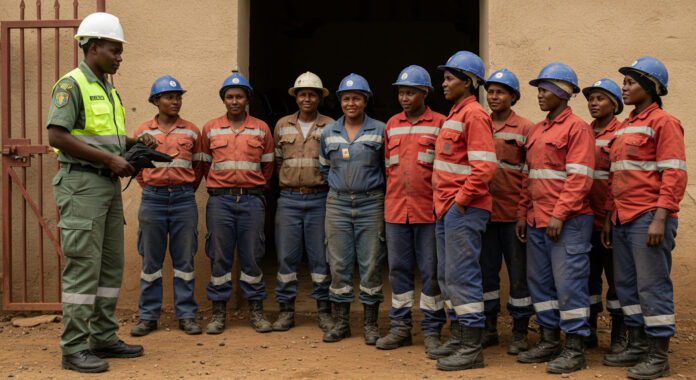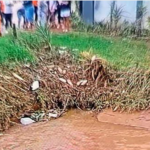The National Union of Mineworkers (NUM) is launching legal proceedings against the management of Kopanong Gold mine following disturbing allegations that female employees were subjected to degrading strip searches. Security guards at the mine are accused of forcing women to strip naked and then physically probing their private parts in a search for stolen gold.
NUM spokesperson Livhuwani Mammburu stated that the union had received credible reports from the affected female employees. "The NUM views this alleged treatment as utterly unacceptable, dehumanising, and a gross violation of our members’ fundamental rights and dignity. Such archaic and invasive practices have no place in a modern and progressive mining industry."
Mammburu continued, “The NUM is disgusted and appalled by these alleged actions. To subject women, who work tirelessly and contribute significantly to the mining sector, to such a humiliating and invasive search is not only reprehensible but potentially illegal. We demand a full and transparent investigation into this matter and call for those responsible to be held accountable.”
The allegations have also been formally reported to the SAHRC and the provincial office of the mineral resources department by a woman employed at the implicated mine.
Mawayi Ngxakamba, one of the workers, was suspended on December 19 after refusing to submit to the strip search. She reported the matter to the Department of Mineral Resources (DMRE), which she says is in discussions with the company that owns the mine.
“During our last meeting at the end of February, they asked me to sign a final warning, which I refused because I had done nothing wrong. I did not steal anything, but I do not want to take off my panties when searched,” Ngxakamba explained.
Ngxakamba detailed the dehumanising process to Sunday World, painting a disturbing picture of the searches. "They start with our bras, then tell us to take off the trousers, then the panties before they ask us to open our legs wide while they bend and look inside our private parts to see if they can find something there.”
Another woman, still employed at the mine, described the humiliation she endured during the searches, stating that the female security officers even mocked her.
“I have a big body, so because I could not stretch my legs wider, they asked me to put my leg on the chair so that they could see if gold balls are not stuffed in my private parts,” she said.
She further explained the emotional toll the experience has taken on her. “I felt humiliated. Some of them saw how clean my thighs were and asked me what I applied because a fat woman like me should have darker thighs. They said I smell bad, but how can I not smell bad? Because I am from underground, it’s hot there, and obviously I sweat."
"When I leave home just to get to work, where a young woman the same age as my daughter touches my private parts, I lose my confidence. Even when I walk on the streets, I feel like people know that young girls frequently touch my body as they like,” she added, highlighting the lasting psychological impact of the searches.
Another woman, who wished to remain anonymous, recounted an incident where she was forced to undergo the search while menstruating. "She [the security officer] touched me and felt something was there. She called others for backup. They told me to undress. I told them that I was on my period. They said I must take the cloth that I used to substitute a sanitary pad so that they can see if nothing is hidden in it.”
Zikhona Mzimba, 30, was fired in February after an incident where she was subjected to a strip search despite suffering from a stomach ailment. “I rushed to the toilet, and while in there, they called out my name and told me to come out. They helped me to undress, bend and look while my legs were wide open. Still, they did not find anything. I complained, and I got fired,” she explained.
The affected women have also sought intervention from the South African National Civics Organisation (SANCO).
SANCO spokesperson Mzukisi Jam said they contacted the company to verify the allegations. “The mine confirmed the allegations, stating that employees do steal gold at times. As to whether there was any violation of human rights in the process, the mine did not care, as the only thing they cared about was the gold they claim is stolen and hidden by these women in their private parts,” Jam stated.
DMRE spokesperson Johannes Mokobane stated that the department is currently processing the allegations internally. “The department may require additional time as it involves investigations to finalise,” he said.
The company held a meeting with its employees on Monday, informing them that the search procedures for women would be changed. They also stated that those who had been suspended or fired would soon be reinstated.
However, the company’s senior human resources manager, Izak Nieuwoudt, declined to comment on the matter. “I know about the matter, but I am not commenting thanks,” he said.
The allegations against Kopanong Gold mine raise serious concerns about the treatment of female workers in the mining industry and the potential for human rights violations in the pursuit of security measures.

Follow Us on Twitter











